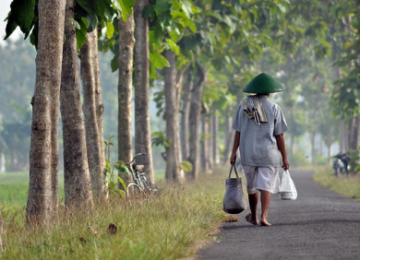A new study by the telecommunications expert in the Asia-Pacific TRPC and Prof John Ure (Hingkong University) sheds light on the use of broadband communication for disaster relief. The study "Public Protection and Disaster Relief (PPDR) Services and Broadband in Asia and the Pacific: A Study of Value and Opportunity Cost in the Assignment of Radio Spectrum" aims to estimate the costs and benefits of awarding broadband spectrum to disaster relief agencies on either an exclusive or a shared basis.
"The cost is the opportunity cost of not awarding that spectrum to commercial operators of 4G LTE services and any consumer surplus that may arise from tariff reductions to users as a result of greater competition among mobile network operators (MNOs). The benefits arise from any reductions in losses that may result from dangers to public safety as a consequence of using broadband applications in PPDR services.
Eight economies are studied: Australia, China, Indonesia, Malaysia, New Zealand, Singapore, South Korea and Thailand. The results of the cost-benefit approach will differ according to economy due to its level of risk. The study uses a combination of top-down and bottom-up methodologies. Top-down data is available from several internationally-recognized sources and relates to the DR part of PPDR, that is to catastrophic events such as cyclones, earthquakes, epidemics, etc. Bottom-up data is focused on the “cost of crime” as a subset of the PP part of PPDR and relies heavily upon the database of UNODC and an online toolkit, IBM’s Benefits Estimator.
This study makes the assumption that spectrum assigned to PPDR agencies could be used for a range of narrowband, wideband and broadband PPDR applications, but it notes that the spread of broadband access, smart devices and applications is rapidly becoming the norm in societies and future decisions about PPDR services will have to take this into account. They cannot be made in isolation. One of the conclusions of the study is that broadband spectrum for a dedicated PPDR network outside of emergency situations could be shared on a commercial basis with non-PPDR users as an incentive to the efficient use of spectrum. This is exactly the reverse of the proposal of the FCC in the US which would assign the spectrum to commercial users but encumber it for sharing with PPDR agencies in times of need. "

